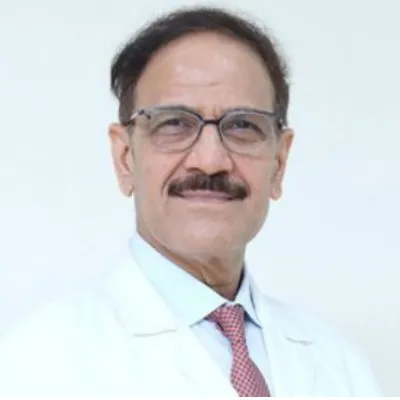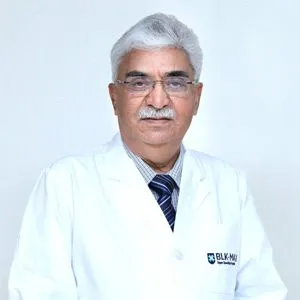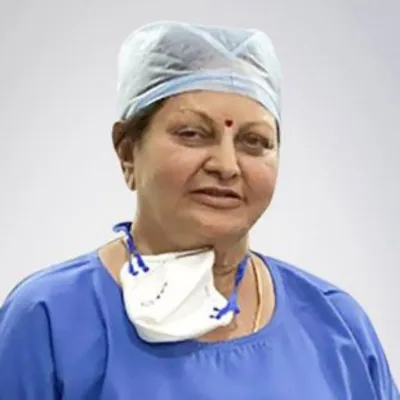Best Orthopedic Surgeons in Artemis Hospital Gurgaon
 17 December,2025
Read More
17 December,2025
Read More
Starting From: USD 3,007 - USD 4,210
Robotically Assisted Tricuspid Valve Repair is affordable in India. The cost of Robotically Assisted Tricuspid Valve Repair in India lies between USD 3,007 - USD 4,210. The exact procedure price depends on multiple factors such as the surgeon's experience, type of hospital, severity of the condition, patient's general condition,�etc.
The tricuspid valve, one of the heart's four valves, plays a crucial role in regulating blood flow between the right atrium and right ventricle. When this valve malfunctions, it can lead to tricuspid regurgitation or stenosis, potentially causing significant cardiac issues. Historically, surgical interventions for tricuspid valve disorders involved open-heart procedures with extensive incisions. However, the advent of robotically assisted tricuspid valve repair has ushered in a new era of precision and minimally invasive cardiac surgery.
The tricuspid valve is situated on the right side of the heart and is responsible for ensuring blood flows correctly between the right atrium and ventricle. When it fails to function properly, it can lead to conditions like tricuspid regurgitation (backward flow of blood) or stenosis (narrowing of the valve opening), necessitating surgical intervention.
Robotically assisted tricuspid valve repair represents a significant leap in cardiac surgery. It leverages specialized robotic systems equipped with miniature instruments and a high-definition camera. These instruments are deftly controlled by the surgeon from a console within the operating room, providing an amplified, three-dimensional view of the surgical field.
The selection of candidates for robotically assisted tricuspid valve repair involves a comprehensive evaluation by the cardiac surgical team. While this approach offers significant benefits, it may not be suitable for all patients. The best candidates for robotically assisted tricuspid valve repair typically exhibit the following characteristics:
It's important to note that the final determination of a patient's suitability for robotically assisted tricuspid valve repair is made after a comprehensive evaluation by the cardiac surgical team, taking into account the specific details of the individual case. Alternative treatment options, such as traditional open-heart surgery or other minimally invasive approaches, may also be considered depending on the patient's unique circumstances.
While robotically assisted tricuspid valve repair offers substantial benefits, not all cases may be suitable for this approach. The decision to opt for this procedure is made after a thorough evaluation by the cardiac surgical team, considering factors such as the specific type and severity of the tricuspid valve disorder, the patient's overall health, and the surgeon's expertise.
As with any surgical procedure, there are potential risks associated with robotically assisted tricuspid valve repair, including bleeding, infection, and adverse reactions to anesthesia. Additionally, while rare, there may be specific risks related to the use of robotic technology.
Robotically assisted tricuspid valve repair represents a monumental advancement in cardiac surgery. By seamlessly integrating advanced robotic technology with the proficiency of cardiac surgeons, this procedure offers patients a highly effective and minimally invasive approach to treating tricuspid valve disorders. As this technology continues to evolve, it is poised to redefine the landscape of cardiac care, further elevating surgical outcomes and benefiting patients worldwide.

Chairman
Interventional Cardiologist
BLK-Max Super Speciality Hospital, New Delhi

Director
Cardiologist, Interventional Cardiologist
Max Super Speciality Hospital, Saket, New Delhi

Chairman
Cardiac Electrophysiologist, Interventional Cardiologist
BLK-Max Super Speciality Hospital, New Delhi

Consultant
Interventional Cardiologist
Indraprastha Apollo Hospital, New Delhi

Head of Department (HOD)
Cardiologist
Nanavati Super Specialty Hospital, Mumbai

Consultant
Interventional Cardiologist
Apollo Hospital Chennai, Greams Road
Doctor of Pharmacy
Dr. Deepanshu Siwach is a skilled clinical pharmacist with a Doctor of Pharmacy degree.?He has 4+?years of experience and has worked with thousands of patients. He has been associated with some of the top hospitals, such as Artemis Gurgaon.
Dr. Deepanshu Siwach is a skilled clinical pharmacist with a Doctor of Pharmacy degree.?He has 4+?years of experience and has worked with thousands of patients. He has been associated with some of the top hospitals, such as Artemis Gurgaon....
Dr. Aseem Ranjan Srivastava is an experienced Pediatric Cardiothoracic Surgeon specializing in Minimal Access and Robotic Cardiac Surgery. He strongly recommends prompt corrective repair when possible....
The Art of Effective Communication
 17 December,2025
Read More
17 December,2025
Read More
 16 December,2025
Read More
16 December,2025
Read More
 10 December,2025
Read More
10 December,2025
Read More
 09 December,2025
Read More
09 December,2025
Read More
 05 December,2025
Read More
05 December,2025
Read More
 04 December,2025
Read More
04 December,2025
Read More